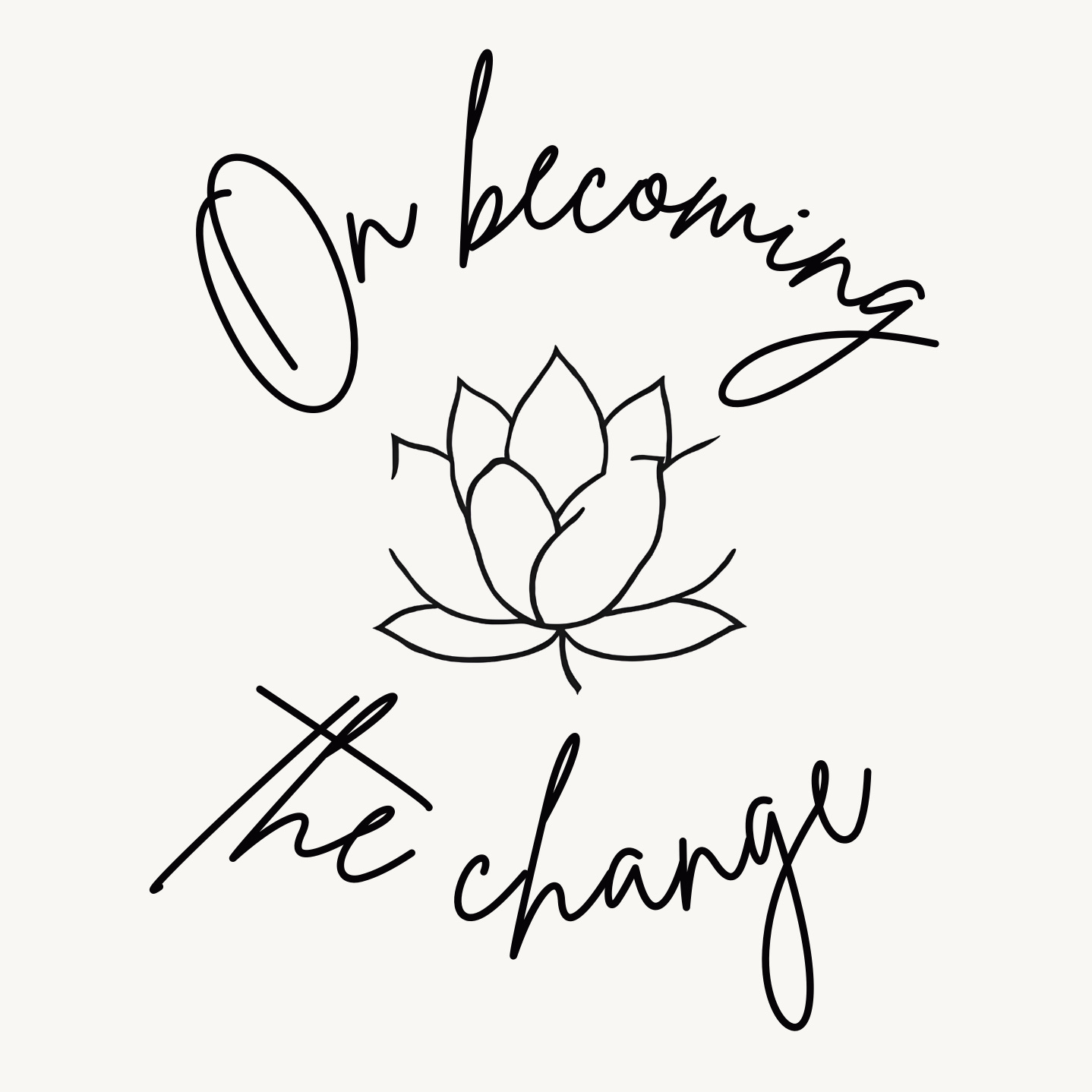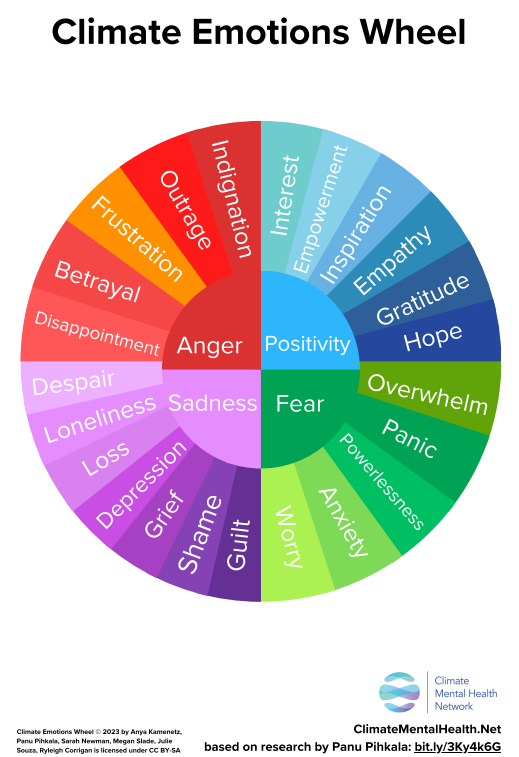“A problem well-stated is a problem half solved”.
In this episode, we’ll explore the problems the world is facing - from looking at how our economic system is having consequences on all natural systems and exceeding the earth’s biocapacity and planetary boundaries - to exploring the current and predicted state of social, environmental and technological issues like climate change, water scarcity, AI, mental health, biodiversity loss and economic inequality. We then look at what might be underneath all of these challenges and the mental models, beliefs and ways of thinking that might be contributing to the issues we are seeing in the world. I explore the interconnectedness of these issues and how old beliefs and fears, as well as our separation and disconnection from our self, others and the natural world may be driving humanity towards it’s own destruction.
In the first half of the episode, I talk about the role of emotional intelligence and share the approaches that have helped me to find more peace and acceptance with absorbing this type of information about the state of the world. From approaching the world’s problems with acceptance, to holding the stories of the future lightly, to connecting with and welcoming emotions and bringing ourselves back into the present moment. I share an invitation in the episode before I share stats and figures for you to check in with yourself and how resourced you feel to listen to that part and do what feels right for you.
I’ll also dive into the emotional landscape of these challenges, sharing what feelings this type of information brings up for me and share ways in which you can manage feelings that arise for you and and offer you some space to process your feelings.
Stay tuned for the next episode with Benjamin Casteillo where we will further unpack the metacrisis in more detail and in the next solo episode, I will be sharing more about my vision for the future and how I want to support others to contribute to solving these issues.
Here is the climate emotions wheel I mention:
Here are other blogs I’ve written which I mention and might support you:
All sources from the episode can be found below.
A few updates from me:
1:1 Coaching - If you are interested in exploring how coaching could support you in navigating the global crises we face with more ease, acceptance and to find your inherent motivation and resourcefulness to live and work in a way that feels aligned and authentic to you, I would love to chat, you can book a free discovery call with me below.
Conscious Evolution Collage - I am hosting an online Conscious Evolution Collage on Tuesday 26th November 6-9pm (sign up here) - come and join if you’re curious about understanding the roots of the metacrisis and how we can create a more desirable and sustainable future.
Conscious Changemakers walk- I host monthly relaxed and mindful walks in Reigate, Surrey for people who care about people and the planet and want to reconnect with nature and connect with like-minded people. You can sign up to the next one on 24th November here.
COMING SOON - On Becoming the Change programme - I am in the process of creating an offer for people to start next year to support them on their journey of becoming the change they want to see. I would love to speak to people who are curious about doing more inner work to create systemic change, so if that’s you and you’d be up for a chat to share your journey and thoughts and are happy for me ask you a few questions, please schedule in a call with me. As a thank you, I will offer a free 45 min coaching call for your time.
Sources mentioned in the podcast
The world economy's rate of expansion is expected to increase 3.0% yearly so the Global economy is projected to double in size roughly every 25 years.
Less is More: How Degrowth Will Save the World by Jason Hickel
We are currently using 1.7x what the planet can naturally replenish so we are using up almost double what the planet can renew
A report from the Institute of Actuaries and Faculty said 50% of economies may collapse by 2070
We have exceeded 7 out of 9 planetary boundaries -these are the nine key systems and processes that contribute to stable, healthy life on Earth for all organisms - seven of them have crossed the threshold to a point where they are deemed to not be able to function properly.
Climate change is creating implications at more frequent and more extreme levels - there’s an 80% likelihood that the annual average global temperature will temporarily exceed 1.5°C for at least one of the next five years. If temperatures rise by 4 degrees it could be enough to kill the amazon rainforest. It could lead to melting of the ice sheets, lead to more flooding where 630m people live less than 33 feet above sea level. Temp rise will make many places inhabitable.
W Thiry et al. Intergenerational inequalities in exposure to climate extremes
Stockholm int peace research - world military spending rises to almost 2 tr in 2020
The UN forecasts around 1.2 billion people may migrate by 2050.
The Intergovernmental panel on climate change calling code red for humanity.
We’re in the sixth mass extinction - there has been a 69% decline in animal species since 1970. 30-50% of all species could face extinction by 2050. Wildlife makes up 4% of the world's mammal biomass, while livestock make up 62% and humans account for 34%.
WWF’s Living Planet Report 2022. 2019 review published in Biological Conservation
More than 40% of insect species are declining and a third are endangered. The rate of extinction is eight times faster than that of mammals, birds and reptiles. The total mass of insects is falling by 2.5% a year so they could vanish within a century. Insects are “essential” for the proper functioning of all ecosystems, including our food systems
https://www.theguardian.com/environment/2019/feb/10/plummeting-insect-numbers-threaten-collapse-of-nature#:~:text=The%20world's%20insects%20are%20hurtling,are%20endangered%2C%20the%20analysis%20found. & https://www.sciencedirect.com/science/article/abs/pii/S0006320718313636
Pollution causing deaths - in 2019 there were 9 million premature deaths per year.
https://www.thelancet.com/journals/lanplh/article/PIIS2542-5196(22)00090-0/fulltext
Water pollution - A UNEP study found that more than 40% of bodies of water are severely polluted.
(Source: UN Water, 2022). (Source: IPCC, 2021
Water scarcity - 2.3 billion people live in countries that are considered "water-stressed". The U N predicts that nearly 5.7 billion people could face water scarcity by 2050. By 2100, some models suggest that freshwater resources in certain regions could decline by up to 30% due to climate-related changes in precipitation and snowmelt patterns
Food - Globally we waste a third of all food produced. Nearly a billion people are affected by hunger and a third of the population faces food insecurity.
On soil, which we rely on for food - 33% of the world's soils are already degraded, and over 90% could be degraded by 2050.
Social inequality is rising and there is a growing wealth gap - The wealthiest 1% own about 46% of the world’s wealth.
1 in 8 people worldwide live with a mental health disorder. mental health disorders are expected to increase by 50% by 2040 due to the ongoing rise in stress, social pressures, and environmental factors like climate change.
https://www.who.int/news-room/fact-sheets/detail/mental-disorders
(Lancet Commission on Global Mental Health)
The amount of young people feeling eco-anxious about the future has increased, a study of 10,000 16-25 yr olds saw 45% reported that their climate anxiety negatively affects their daily lives and functioning. 56% believed that humanity is doomed due to insufficient action on climate change by governments and corporations.
A recent study said 80% of people across the world want governments to take stronger action on climate change.
The increased use of AI is at risk of widening economic inequality and an article from the UN says that 80% of jobs could be automated in the coming decades.
Mo Gawdat, ex-google, says AI will be a billion times smarter than us by 2049.
Other issues mentioned and not further explored in the episode - geopolitical issues, wars, pandemics, cyber attacks, refugee crises, nitrogen and phosphorous crises, overfishing, deforestation, ocean acidification, explosive human pop growth, corporate exploitation, geopolitical volatility, censorship, human rights issues, political polarisation, loss of trust in institutions, loneliness and isolation epidemic and more.
* A problem well stated is a problem half solved” - is a Charles Kettering quote (not Einstein, my bad)












